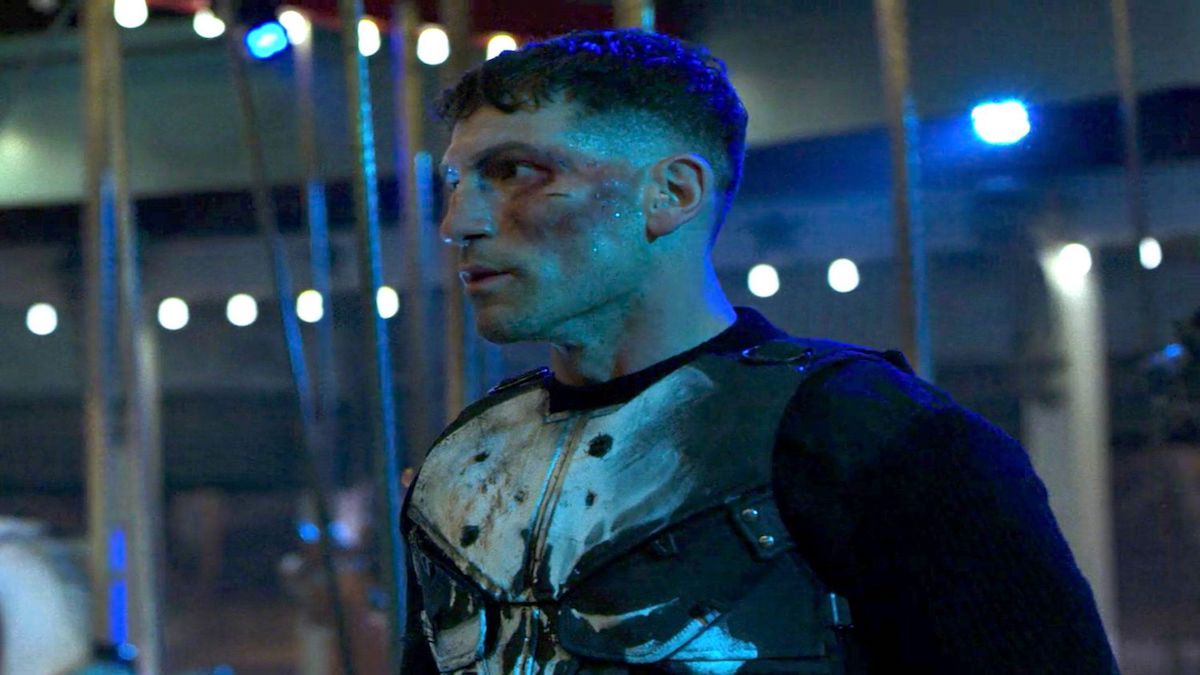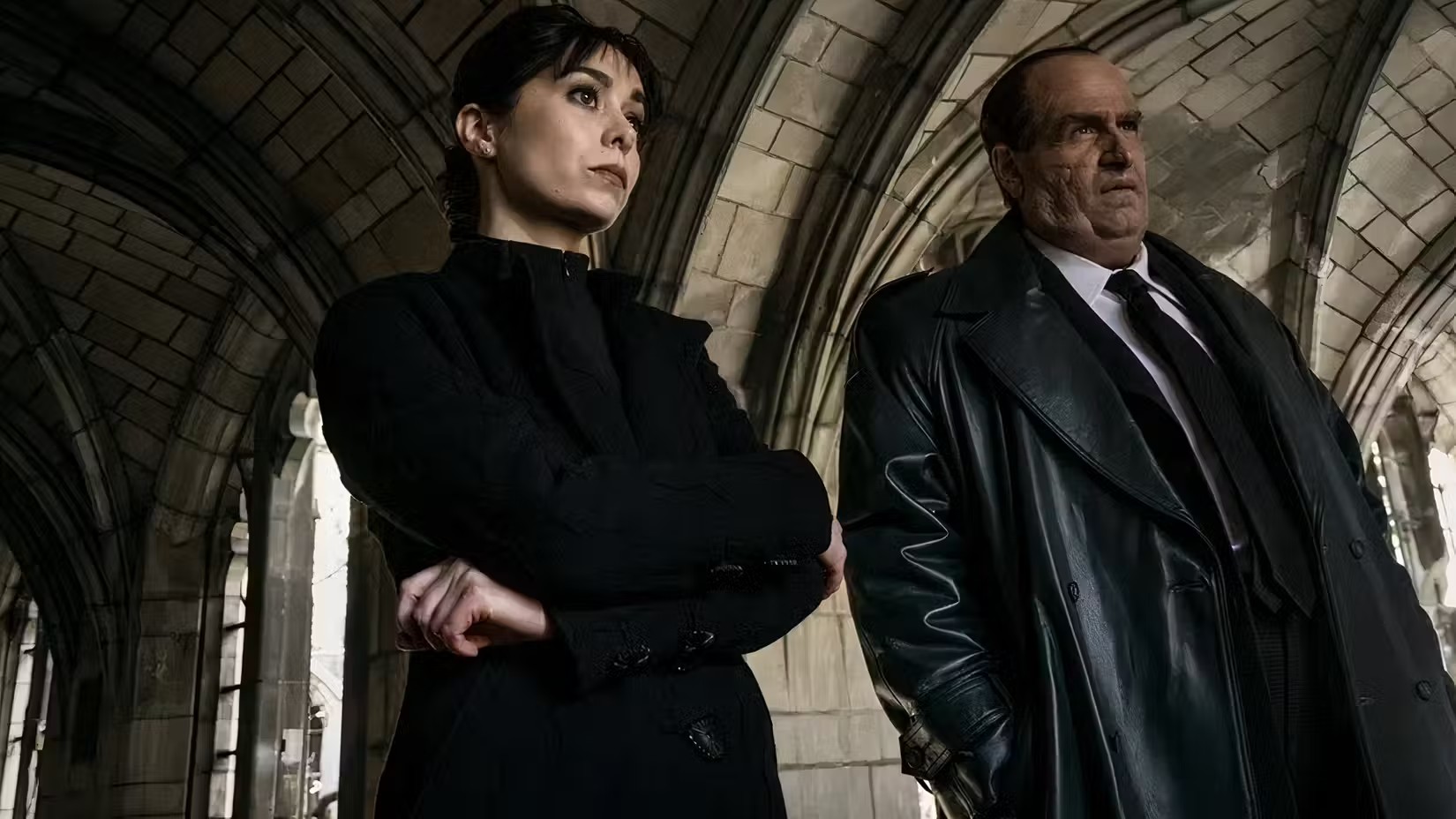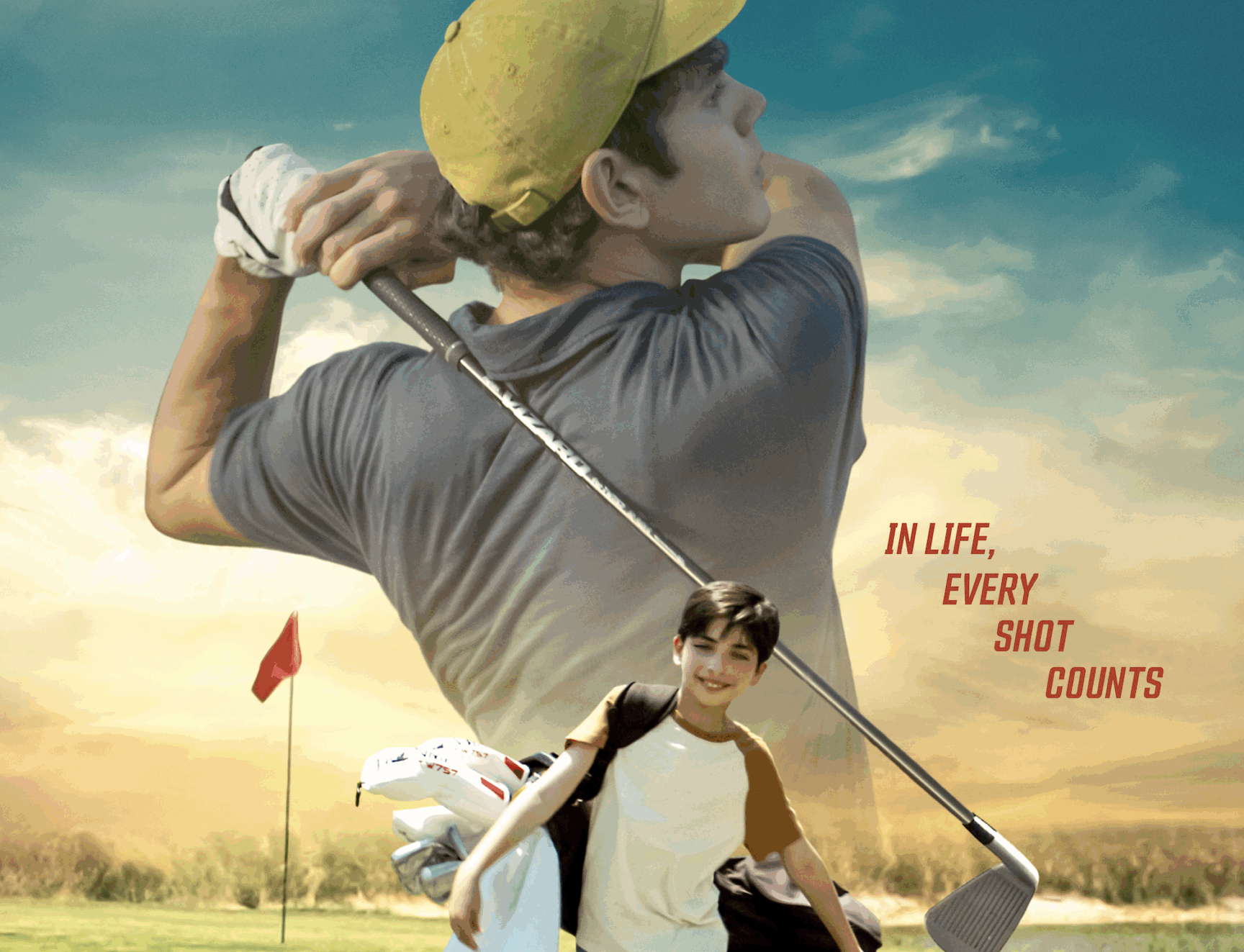Rudy Valdez brings us an international music icon Carlos Santana to the big screen with Carlos: The Santana Journey. Marking a perfect stamp during Hispanic Heritage Month with a story of resilience and determination we can all use inspiration from.
The Synopsis
At the age of 5, in his native Mexico, he learned to play the violin. At 8, he developed a lifelong love for the guitar. At 14, he honed those guitar virtuoso skills and his performance style working as a street musician, starting his own band long after, while still a teenager. And at 22 — just before his first album was released to acclaim — Carlos Santana became one of the major discoveries of Woodstock, anchoring the famous festival’s second afternoon on August 16, 1969. A music industry legend for 50 years and a 10-time Grammy-winning global sensation, as well as a recipient of a Kennedy Center Honor and a Billboard Century award, Santana continues to be one of the music world’s premiere artists, blending jazz, blues, and the Mariachi sound with a rock n’ roll spirituality and a sense of connection to music’s primal connection to our deepest emotions. The electric documentary CARLOS utilizes new interviews with Santana and his family alongside extraordinary, never-before-seen archival footage — including home video recordings Santana himself made; concert footage; and behind the-scenes moments — as two-time Emmy-winning director Rudy Valdez (The Sentence; Through Our Eyes; We Are: The Brooklyn Saints) creates an intimate, rich documentary about a man whose sound casts a spell on fans who love — as one of Santana’s famous titles says— “how his rhythm goes.”

I had the opportunity to connect with Rudy Valdez via Zoom to discuss the process of creating the documentary Carlos: The Santana Journey. He shared his focus on the intimate side of Carlos Santana rather than his public figure. Valdez explained how the safe space was built for Santana over Zoom conversations during the pandemic lockdown. We also covered the common interests that Valdez and Santana shared in making this documentary and more!
Nancy Tapia: Thank you. Well, hi Rudy. It looks like we got the memo. Look at us.
Rudy Valdez: I know. I am glad I read the memo. I usually don’t read them, but I got it.
Nancy Tapia: Well, it must be really exciting to be talking about Carlos.
Rudy Valdez: Yeah, I feel like it’s been such a long time coming from when I was first sort of approached by it to it finally coming out. It feels like it’s been a long time.
Nancy Tapia: Now in Carlos: The Santana Journey. You’re bringing more of the intimate side of Carlos, not the Senñor Santana. Can you talk a little bit about that?
Rudy Valdez: Yeah, I mean, I think just being somebody who had already known quite a bit about Carlos, I feel like there’s so much out there about the musician, about his musical journey and getting to know him over the course of making the film. I was like, “Oh, there’s kind of this other side too of him that people don’t always get to see.” And what better way to sort of bring a new version of Carlos up and to show some of the more intimate, sort of familial, and just seeing Carlos hanging out moments and hearing things from his voice.
Nancy Tapia: So how do you connect with Carlos to get this other side of him? How do you create that safe environment?
Rudy Valdez: What’s interesting is when this project first started, it was actually right before the pandemic happened. What that meant was that he was going to go on tour with Earth, Wind & Fire. There were all these things that were going to happen, and I was going to maybe go to some of those concert dates and spend some time with him.
Roger Ross Williams Discussed Mother And Son Relationship In Cassandro | Exclusive
And the lockdown started and so what ended up happening was Carlos and I just started having phone conversations. I think that helped a lot, just in the sense that there wasn’t this pressure of having to have a camera there and filming. Even though the purpose of them was sort of to maybe start doing interviews over the phone or over Zoom, they really just turned into conversations. So we kind of got to know each other. And then finally when some of the restrictions went away, I was able to finally go out and spend some time with him.
It wasn’t like we were fresh. I was walking in with a camera, never having talked to him. So I think that just having the ability to put in that time and have some conversations and learn a bit, not just about me learning about Carlos but him learning a bit about me. We built a rapport and I think trust started happening there, so it was easier to get to know him.
Nancy Tapia: So we have COVID to thank for making a stronger bond and creating that foundation.
Rudy Valdez: Yeah, I’m always very careful to not say thankful because obviously it wasn’t a great time for this.
Nancy Tapia: I can say it for you, haha..
Rudy Valdez: Haha..That was a silver lining for us. It was that we were able to just have some conversations and get to know each other before we had the real pressure of filming.
Nancy Tapia: So what are some of the things that you got to hear about him?
Rudy Valdez: Well, I think that you hear about some of the things in the film just about his journey. I think the thing that really allowed us to bond very early on is we had a very similar POV of the type of story that wanted to be told here. I didn’t want to come in, and nothing against any other documentaries about icons or about musicians and things. But I didn’t want to come in and tell a pobresito story about Carlos Santana.
I wanted to tell a story about hope and agency and what it means when you risk it all and believe in yourself enough to risk it all and go out after your dream. I think that that was something that he and I saw eye to eye on very early on. He didn’t want to woe with me. We all have read and know that he came from not a lot of means and had a rough upbringing.
But he didn’t want that to be the thing that you left the theater knowing about him and I didn’t either. So I think knowing off the bat that we both had that angle of, let’s tell a story of hope and resilience and beauty and love. We were able to move forward very quickly with the way the story is shaped out.
Nancy Tapia: I mean, he says, and correct me if I’m wrong that this documentary represents a collective consciousness, that there are no borders or flags that contain one’s passion. So it’s about being able to dream and succeed.
Rudy Valdez: Yeah, and I think one of the things for me personally growing up, I would listen to Carlos Santana. My mom would always play his music when we were at home and things like that. As I started to get older and wanted to become a storyteller and an actor and a writer and all these things, I started to look out
into the media landscape at people who looked like me. Because I knew that that was going to play a part, I can’t deny what I walk around in my skin every day and how that was going to affect how I navigated that landscape. Carlos was always somebody that I looked to, I don’t even think I’ve ever told him this. Because I didn’t want it to feel like a fanboy thing. But he was somebody that I always looked to… Somebody who looked like me who didn’t allow these barriers to sort of keep him in.
I’m sure when he started, they were like, “You’re playing rock and roll music? You should be playing mariachi or cumbia or these other things.” And he was like, “No, no, no. I’m going to play with BB King. I’m going to play rock. I’m going to play all of these things and I’m going to play worldwide. I’m not going to allow other people’s sort of boxed in mind of what they think I am, to constrain me into these things. I’m going to do all this stuff.” And so I really wanted to capture that and find the essence of that. Because he truly does have a journey throughout his career of the many band members and the many styles of music and all the venues that he played. I wanted to try and encapsulate all of that into one film and see that full journey.
Nancy Tapia: So what was your favorite part after watching the final cut?
Rudy Valdez: I really loved Carlos as a son and as a father. Those were the moments that really felt very special to me because I think that that isn’t something that a lot of people get to know about Carlos or have seen about Carlos. Is the admiration he had for his parents and how they guided him both musically but also to chase his dreams. Then to see him look at his children in that same way and want to guide them and help them. I think that’s something that’s universal in a lot of ways. I think people watch that. And yes, he’s one of the greatest guitar players ever. Yes, he’s an icon. Yes, he’s all these things, but he’s also a father and a son. I think that that allows people to understand and sort of humanize who Carlos is.
Also Read Saw X | Director Kevin Greutert and Anthony Stabley on the Production Designs
Nancy Tapia: So you’re known for your documentaries, but this one…
Rudy Valdez: I think so, haha…
Nancy Tapia: Haha…but this one is about a global artist and being released during Hispanic Heritage Month, which is huge. So what do you hope people take away from watching this story?
Rudy Valdez: I’m extremely honored, first of all, that it’s being released during Hispanic Heritage Month. Because I think that something that I struggled with for so long growing up was being Mexican-American, born in the US, growing up in the Midwest. I always had this idea that I was never Mexican enough for Mexican people and never American enough or non-Mexican people.
So I always had this fine line that I had to walk all the time, and I felt the kindred spirit with Carlos. While Carlos and I are both extremely, extremely proud of who we are and where we come from, we also want to, I think both be examples that we don’t have to be boxed into telling just those narratives or perpetuating just those stories. We can be a part of that larger storytelling musical landscape, and we can break the mold of all these things. I think that it’s important to both be proud of that, but also understand that we can break out of some of these things and we can do all the things we want to do.

So this film is a little different from a lot of my other films in the sense of it is about a global icon, about a musician, but at its core it’s about humanity. It’s about a person who believed in themselves and I think that that is the common thread with all of the rest of my films.
Nancy Tapia: Well, what are you now taking away from doing this one? Now about you.
Rudy Valdez: Well, the thing that I try to do with all of my projects is challenge myself and continue that journey of being a broad storyteller. I’ve told stories about theater, I’ve told stories about sports, I’ve told stories about the criminal justice system. I’ve told stories about musicians now. I try to do as many different things as possible because I want to be a broad storyteller.
This was another challenge I took upon myself. I mean, there’s this Catch-22 with taking on a project like telling the Carlos Santana story. In the back of my mind, I kept thinking, the only thing I can do is mess this up. Because people love him so much, and he has such a following and such a fandom that it was a lot of pressure to come on and try and cater to that broad spectrum of people that listen to his music and also provide something new and entertaining for them. So I wanted to take that challenge on because I love taking on a challenge and knowing that I can do that next thing. And I’m very proud of this film.
Nancy Tapia: To finalize what’s the next thing that you’re working on?
Rudy Valdez: One thing is top secret, haha… I have a top secret, and it’s another music film but I’ve also been expanding into the scripted world a bit. So I think once again, in the next year or two, you’re going to see more diversity in this type of storytelling that I do. I mean, I always want to come out with something new that people aren’t always expecting. Even people who knew me well when I took this on, were like, “That doesn’t seem like you.” And I’m like, “Yeah, you’re going to continue to see more things that don’t seem like me.” And I love that challenge, and I love trying to tell stories in as many different ways as possible.
Nancy Tapia: Well, that’s great, congratulations! Look at you! You’re not staying in your comfort zone. You’re growing!
Rudy Valdez: I can’t, I can’t haha… I have to keep growing.
Nancy Tapia: That’s awesome. You’re going to grow very, very far.
Rudy Valdez: Thank you, I appreciate it. Thank you for your time.
Nancy Tapia: You’re welcome. Thank you.
Carlos: The Santana Journey is now in theaters
Source: LRMExclusive, Sony Pictures Classics

 FOR FANBOYS, BY FANBOYS
Have you checked out LRM Online’s official podcasts and videos on The Genreverse Podcast Network? Available on YouTube and all your favorite podcast apps, This multimedia empire includes The Daily CoG, Breaking Geek Radio: The Podcast, GeekScholars Movie News, Anime-Versal Review Podcast, and our Star Wars dedicated podcast The Cantina. Check it out by listening on all your favorite podcast apps, or watching on YouTube!
Subscribe on: Apple Podcasts | Spotify | SoundCloud | Stitcher | Google Play
FOR FANBOYS, BY FANBOYS
Have you checked out LRM Online’s official podcasts and videos on The Genreverse Podcast Network? Available on YouTube and all your favorite podcast apps, This multimedia empire includes The Daily CoG, Breaking Geek Radio: The Podcast, GeekScholars Movie News, Anime-Versal Review Podcast, and our Star Wars dedicated podcast The Cantina. Check it out by listening on all your favorite podcast apps, or watching on YouTube!
Subscribe on: Apple Podcasts | Spotify | SoundCloud | Stitcher | Google Play




